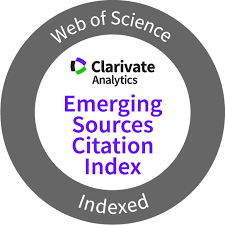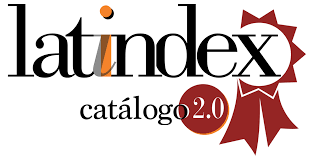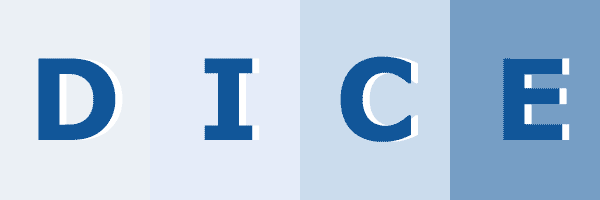#SochiProblems: Ignorance or Arrogance? / #SochiProblems: ¿ignorancia o arrogancia?
DOI:
https://doi.org/10.5783/revrrpp.v4i8.291Palabras clave:
Public RelationsResumen
The study focuses on the twitter conversations about the XXII Winter Olympics Games in Sochi, Russia. Specifically, the study collects and performs content analysis of the tweets tagged with the hashtag #SochiProblems. This study draws a random sample of tweets from every day of the games to achieve a 99% confidence level with 5% confidence interval and uses the framing theory to analyze this sample. The results allow us to determine what substantive and affective frames dominated in the twitter conversations tagged with #SochiProblems hashtag and what was the main focus of the tweets’ content.
Descargas
Citas
Anholt, S. (2006). Competitive Identity: The New Brand Management for Nations,
Cities and Regions. Palgrave Macmillan.
Anholt, S. (2011). Competitive Identity. In Morgan, N., Pritchard, A., & Pride, R. (Eds.), Destination Brands. Burlington, MA: Butterworth-Heinemann.
Arrouas, M. (2014, February 7). @SochiProblems is way more popular than the official Sochi account on Twitter. Time. Retrived from http://time.com/6013/sochiproblems-is-way-more-popular-than-the-official-sochi-account-on-twitter/
Babbie, E. (2004). The practice of social research (10th ed.). Belmont, CA: Thomson Wadsworth.
Bardhan, N. (2013). Constructing the Meaning of Globalization: A Framing Analysis of the PR Strategist. Journal of Public Relations Research, 25(5), 391-410. DOI: 10.1080/1062726X.2013.788447
Cissel, M. (2012). Media Framing: a comparative content analysis on mainstream and alternative news coverage of Occupy Wall Street. The Elon Journal of Undergraduate Research in Communications, 3(1): 67-77.
Entman, R. (1993). Framing: Toward clarification of a fractured paradigm. Journal of Communication, 43(4), 51–58.
Entman, R. (2010). Framing Media Power. In D’Angelo, P., & Kuypers, J. (Eds.). Doing news framing analysis: empirical and theoretical perspectives. New York, NY: Routledge.
Ghanem, S. (1997). Filling in the tapestry: The second level of agenda-setting. In M. McCombs, D.L. Shaw, & D. Weaver (Eds.), Communication and Democracy (pp.3-14). Mahwah, New Jersey: Lawrence Erlbaum Associates.
Hallahan, K. (1999). Seven models of framing: Implications for public relations. Journal of Public Relations Research, 11(3), 205–242.
Hallahan, K. (2005). Framing Theory. In Robert L. H. (Ed.). Encyclopedia of Public Relations. Thousand Oaks, CA: SAGE Publications
Iyengar, S. (1991). Is anyone responsible? How television frames political issues. Chicago, IL: University of Chicago Press.
Ioffe, J. (2014, February 6). Russians think we’re engaging in Olympic schadenfreude. They’re right. New Republic. Retrieved from: http://www.newrepublic.com/article/116507/russians-hit-back-west-cool-it-olympic-schadenfreude
Johnson, B. (2014, February 6). Photographic proof that Sochi is a godforsaken hellscape right now. BuzzFeed. Retrieved from: http://www.buzzfeed.com/bennyjohnson/proof-that-sochi-is-a-godforsaken-hellscape-right-now
Kaufman, S. (2014, February 9). #SochiProblems is more of an embarrassment for America that it is for Russia. World.Mic. Retrieved from: http://mic.com/articles/81663/sochiproblems-is-more-of-an-embarrassment-for-america-than-it-is-for-russia
Ketchum (n.d.). Opening its door to the world: Russia’s presidency of the G8 Summit. Retrieved from: http://www.ketchum.com/node/1061
Kiousis, S. (2005). Compelling arguments and attitude strength: Exploring the impact of second-level agenda-setting on public opinion of presidential candidate images. The Harvard International Journal of Press/Politics, 10(2), 3–27.
Kiousis, S., Laskin, A.V., Kim, J.Y. (2011). Congressional agenda-building: Examining the influence of congressional communications from the Speaker of the House. Public Relations Journal, 5(1), 1-14.
Knight, M. G. (1999). Getting past the impasse: Framing as a tool for public relations. Public Relations Review, 25(3), 381-398.
Laird, S. (2014, February 6). “Sochi Problems” a Twitter hit as Olympic schadenfreude grows. Mashable. Retrieved from: http://mashable.com/2014/02/06/sochi-problems-twitter/
McCombs, M., & Ghanem, S.I. (2001). The convergence of agenda setting and framing. In S.D. Reese, O.H. Gandy. Jr., & A.E. Grant (Eds.), Framing Public Life: Perspectives on media and our understanding of the social world (pp. 67-83). Mahwah, NJ: Lawrence Erlbaum Associates, Publishers.
Nisbet, M.C. (2010). Knowledge Into Action: Framing the Debates Over Climate Change and Poverty. In D’Angelo, P., & Kuypers, J. (Eds.). Doing news framing analysis: empirical and theoretical perspectives. New York, NY: Routledge.
Price, V., Tewksbury, D., & Powers, E. (1997). Switching trains of thought: The impact of news frames on readers’ cognitive responses. Communication Research, 24 (5), 481-506.
Reese, S. D. (2010). Finding Frames in a Web of Culture: The Case of the War on Terror. In D’Angelo, P., & Kuypers, J. (Eds.). Doing news framing analysis: empirical and theoretical perspectives. New York, NY: Routledge.
Robin, R. (2001). The making of the Cold War enemy. Princeton, NJ: Princeton University Press.
Semetko, H. A., & Valkenburg, P. M. (2006). Framing European politics: A content analysis of press and television news. Journal of Communication, 50(2), 93-109.
Shah, D. V., Domke, D., & Wackman, D. B. (2001). The effects of value-framing on political judgment and reasoning. In S. D., Reese, O. H. Gandy Jr., & A. E., Grant (Eds.), Framing public life: Perspectives on media and our understanding of the social world. Mahwah, NJ: Lawrence Erlbaum Associates.
Spais, G.S., & Filis, G.N. (2006). The Athens 2004 Olympic Games: An event study. Journal of Integrated Marketing Communications, 52-61.
Steel, R. (1972). Introduction to torchbook edition. In W. Lippmann, The Cold War: A study in U.S. foreign policy, (pp. vii-xvii). New York: Harper Torchbooks.
Sysomos (2010). Replies and Retweets on Twitter. Retrieved from: http://www.sysomos.com/insidetwitter/engagement/
Sysomos (2014, April). Inside Twitter; An in-depth look inside the Twitter world. Retrieved from: https://www.sysomos.com/docs/Inside-Twitter-BySysomos.pdf
Varshavchik , S. (2006, August 2). How Americans promoted the Russian brand. Izvestia, 1-3.
Webb, E. J., Campbell, D. T., Schwartz, R. D., Sechrest, L., Grove, J. B. (1981). Nonreactive measures in the social sciences. Boston: Houghton Mifflin.
Zhang, J., & Cameron, G.T. (2003). China’s agenda-building and image polishing in the US: Assessing an international public relations campaign. Public Relations Review, 29, 13-28.
Descargas
Archivos adicionales
Publicado
Cómo citar
Número
Sección
Licencia
Los autores que publican en esta revista están de acuerdo con los siguientes términos:- Los autores conservan los derechos de autor y garantizan a la revista el derecho de ser la primera publicación del trabajo al igual que licenciado bajo una Creative Commons Attribution License que permite a otros compartir el trabajo con un reconocimiento de la autoría del trabajo y la publicación inicial en esta revista.
- Los autores pueden establecer por separado acuerdos adicionales para la distribución no exclusiva de la versión de la obra publicada en la revista (por ejemplo, situarlo en un repositorio institucional o publicarlo en un libro), con un reconocimiento de su publicación inicial en esta revista.
- Se permite y se anima a los autores a difundir sus trabajos electrónicamente (por ejemplo, en repositorios institucionales o en su propio sitio web) antes y durante el proceso de envío, ya que puede dar lugar a intercambios productivos, así como a una citación más temprana y mayor de los trabajos publicados (Véase The Effect of Open Access) (en inglés).




